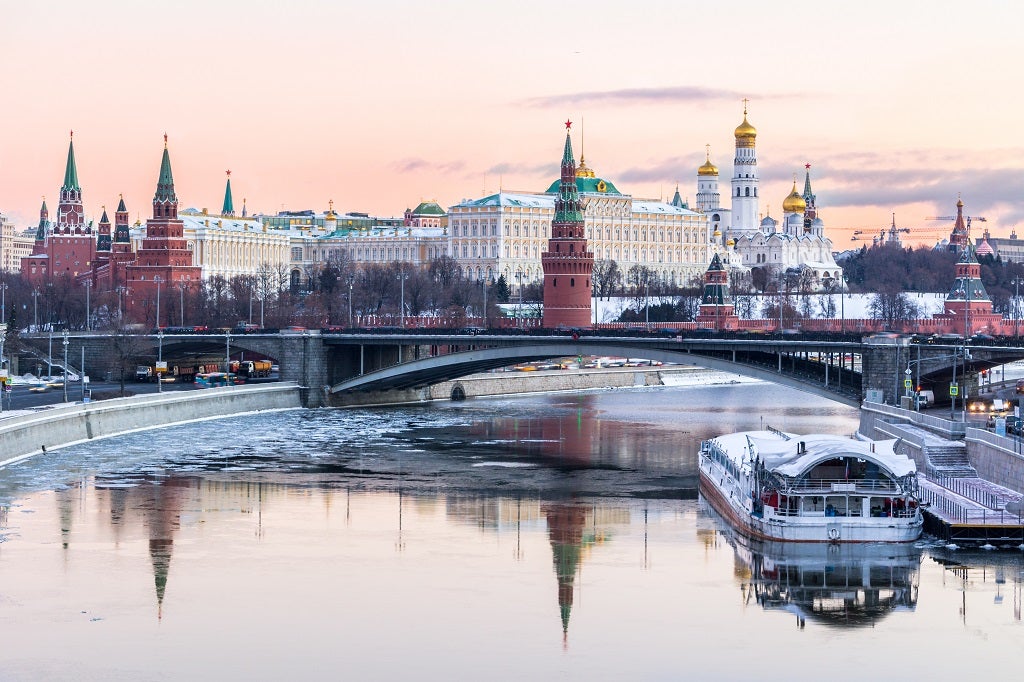Moving to Moscow
Moscow
-
Affordability 5 out of 5
-
Safety 4 out of 5
-
Healthcare 2 out of 5
-
Traffic Flow 1 out of 5
-
Property affordability 1 out of 5
-
Climate 3 out of 5
-
Environment quality 4 out of 5
The largest country in the world and one which has borders with 16 others requires a capital with immense political and economic power. Moscow has played that role in Russia for many centuries and, with the rising might of the BRIC nations, looks set only to enhance its standing as a major world city.
The city on the frontier where Europe meets Asia has had an eventful history. The Rus, Mongols, Tartars, Tsars and Soviets have all made Moscow a seat of power and influence in the region. The city has been sacked and burned, seen riots and revolutions, has fought off invaders and hosted the Olympic games.

Today Moscow is the capital of the Russian Federation and is the home to nearly 12 million inhabitants, making it the most populous city in Europe. The badly managed liberalisation of the Russian economy after the fall of the Soviet state has also led to it having the world’s second largest billionaire population.
Select the size of your move to get free quotes
Moscow is Russia’s primary financial centre, home to giant corporations like the energy company Gazprom and still has a thriving manufacturing sector which coexists with newer software development companies.
The sprawling metropolis, its historic landmarks and architectural treasures, five airports, high speed rail network, metro and concentric ring roads sit at the centre of the web of modern Russia. A web carefully watched over and closely tended by Vladimir Putin.
Moving to Moscow from the UK
The Russian language is a tricky one for anglophones and those moving from the UK to Moscow should start trying to get to grips with it in advance. Once you’ve arrived you could take 8 weeks of evening classes at the Center for Russian Language Studies for RUB 16,575 (£340).
Moscow covers a much larger area than any UK city so figuring out where to live will be a major decision. It’s recommended to rent an apartment in the short term to begin with (or stay in a hotel if you can afford it) to get your bearings and juggle the competing factors of commute time, proximity to amenities, nightlife etc.
Pokrovsky Hills and Rosinka International Residential Complex are two neighbourhoods catering specifically to the needs of expats. The former has an Anglo-American School and the latter a British International School. Rosinka though is a good hour’s drive from the centre in traffic and is therefore only really suitable if you work at a nearby company or at one located on the major ring road (MKAD).

Following the global financial crisis house prices in Russia nose dived but are climbing again as of 2010. Moscow prices were up by around 4% in 2012. The price for a three bedroom property in the Central okrug ranges from RUB 15,000,000 (£307,700) to nearly RUB 1tr (£20m and change).
Comparing Moscow vs London
Moscow sees similar summer high temperatures to London but is less protected from the cold northern winds which can take winter temperatures to as low as −42 °C in winter (though a more typical average low is -9 °C). There is 20% more precipitation on average in Moscow than in London (though there are less rainy days) and 17% more sunshine.
Muscovites pay less in rent and for property than Londoners. They also get cheaper groceries, utilities, restaurant bills and entertainment. High mortgage rates and lower salaries make it debatable whether the cost of living is any cheaper though.
Moscow’s inhabitants report feeling less safe than Londoners on average, spend more time commuting, put up with more pollution and receive lower quality health care.
Like London Moscow has incredible architecture (cf. St Basil’s Cathedral and Red Square), world class performing arts venues (Bolshoi Ballet, Moscow International House of Music, Moscow Art Theatre) and a huge array of museums and galleries (e.g. Pushkin Museum of Fine Arts, State Historical Museum).







